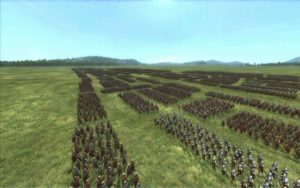I was pretty sure Numbers wasn’t represented on the list of top Bible verse about God’s holiness, but it certainly could be. One of the great things about preaching through the book of Numbers is that it provides opportunities to teach faith-families about God’s potentially fatal holiness.
Take, for instance, Numbers 3:1–4:49. God certainly will bring us into this land (from 14:8), but it involves navigating His fatal holiness. Before God’s people begin their trek, they must learn how important it is to have God in the center of their camp and how to keep from getting killed by holiness-at-close-range.
So, you can teach the seriousness of God’s presence (in vv. 3:7-10, 38; 4:15, 17-20). The Levites are assigned the task of guarding Aaron and the whole congregation. Priests and people must approach God on His terms. The threat of death is sprinkled throughout the section (cf. 4:15, 19-20). The “holy things” cannot be mishandled “lest [those who do] die” (4:15).
I probably don’t have to say that we don’t know much about the holiness of God to this degree!
You can also teach about the price to enter God’s presence (vv. 3:11-13, 40-51). In this section the Lord declares to Moses that He has taken the Levites “instead of the firstborn…among the people of Israel….for all the firstborn are mine….They shall be mine: I am the Lord” (3:12-13).
[Anyone interested in showing how the Christ-event makes Numbers function for the Church will want to show God providing His own Son to pay the steep price.]
Finally, you’ll want to consider some segment that provides an opportunity for congregants to respond to being able to enter God’s presence.
I practice faith-first application so before I get to the “be holy, for I am holy,” part, I will talk about Christ as outlined in brackets above. Then, once I’ve established that Christ makes His holiness available to all who believe, it’s time to make sure everyone in the house consecrates themselves by faith, in the power of Christ’s Spirit (cf. Lev. 11:44-45). God’s holiness demands and creates our holiness in those who believe.
I am finding that, in a day and age when many professing Christians profess faith, some haven’t connected their faith with actual holiness. The book of Numbers provides excellent theology to combat this spiritual disease.
I hope you’ll have an opportunity to preach Numbers so God receives glory in the church and in Christ Jesus (Ephesians 3:21).
Randal











